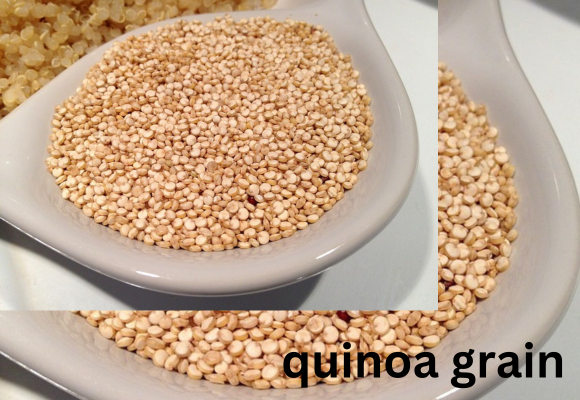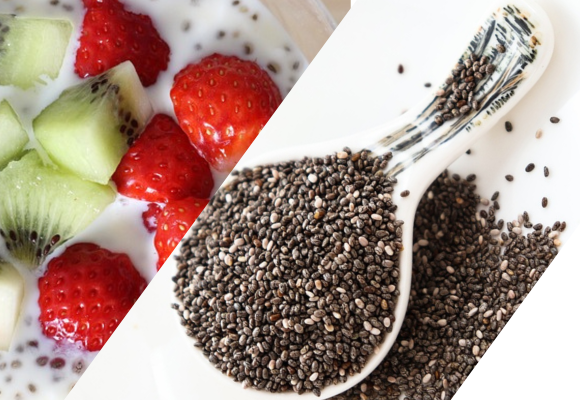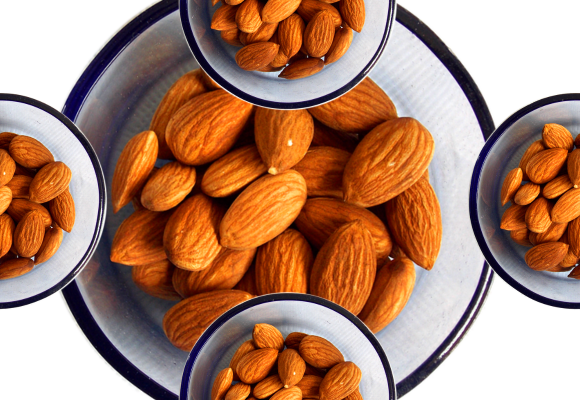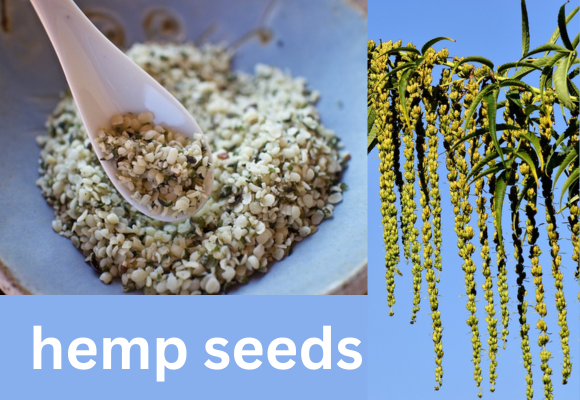
Power Up Your Morning with the 12 Best High Protein Foods to Eat for Breakfast
When it comes to starting your day on the right foot, a breakfast packed with high protein foods can provide the perfect fuel to kickstart your metabolism and keep you energized throughout the morning. High protein foods are not only beneficial for muscle growth and repair, but they also contribute to feelings of satiety, helping to curb unhealthy snacking later in the day. In this article, we will explore the top 12 high protein foods that you can incorporate into your breakfast routine. Whether you prefer savory or sweet options, these protein-packed choices will ensure a nutritious and satisfying start to your day.
Eggs, a versatile and nutritious breakfast staple, top the list of high protein foods. Loaded with essential amino acids, vitamins, and minerals, eggs are a complete protein source that can be prepared in various ways. From scrambled and omelets to hard-boiled or poached, eggs provide approximately 6 grams of protein per large egg, making them an excellent choice to power up your mornings. Pair them with whole-grain toast or sautéed vegetables for a well-rounded breakfast.
Greek yogurt is another fantastic high protein option that not only offers a creamy and tangy taste but also provides a generous amount of protein. With approximately 17 grams of protein per 6-ounce serving, Greek yogurt surpasses regular yogurt in terms of protein content. Additionally, it contains beneficial probiotics that promote gut health. Enjoy Greek yogurt on its own, or enhance its flavor and nutrient profile by adding fresh fruits, nuts, or a drizzle of honey.
For those following a plant-based or vegetarian diet, tofu emerges as a protein-packed alternative that can be enjoyed in various forms. With around 20 grams of protein per 100 grams, tofu is an excellent source of plant-based protein. Whether incorporated into a scramble, tossed into a smoothie for added creaminess, or grilled as part of a savory breakfast bowl, tofu offers versatility and a substantial protein boost to your morning routine.
Quinoa, often hailed as a superfood, is not only rich in fiber and essential nutrients but is also an exceptional source of plant-based protein. With roughly 8 grams of protein per cooked cup, quinoa provides a complete protein profile, containing all the essential amino acids our bodies need. Incorporate quinoa into breakfast bowls, porridges, or even bake it into protein-packed muffins for a delicious and nutritious way to start your day.
Chia seeds are tiny powerhouses that deliver an impressive amount of protein, omega-3 fatty acids, and dietary fiber. With approximately 4 grams of protein per ounce, chia seeds can be a valuable addition to your breakfast routine. Soak them in liquid, such as almond milk or yogurt, to create a chia seed pudding, or sprinkle them over oatmeal, smoothies, or toast for an added protein boost. Their gelatinous texture adds a pleasant twist to your morning meal
Table of Contents
1.eggs

Eggs are a nutritional powerhouse and an excellent choice for a high protein breakfast. Packed with essential amino acids, vitamins, and minerals, eggs provide the fuel your body needs to kickstart the day. As a complete protein source, they contain all the essential amino acids necessary for muscle growth and repair. With their versatility and numerous preparation options, eggs are a go-to choice for those seeking a nutritious and satisfying morning meal.
When it comes to high protein foods, eggs are a shining star. With approximately 6 grams of protein per large egg, they offer a substantial dose of this essential macronutrient. The protein in eggs is of high quality, meaning it contains all the necessary amino acids that our bodies need but cannot produce on their own. By consuming eggs as part of your breakfast routine, you’re providing your body with a complete protein source that supports overall health and well-being.
One of the remarkable aspects of eggs as a high protein foods is their versatility in the kitchen. From classic preparations such as scrambled and sunny-side-up to more elaborate dishes like omelets and frittatas, eggs can be tailored to suit your taste preferences and dietary needs. Additionally, they can be easily paired with other high protein foods to create a balanced and nutrient-rich breakfast. Combine eggs with whole-grain toast, fresh vegetables, or lean meats for a well-rounded meal that will keep you satisfied until lunchtime.
Not only do eggs boast an impressive protein content, but they also provide essential nutrients. They are an excellent source of vitamins B12, D, and choline, as well as minerals like selenium and phosphorus. These nutrients play crucial roles in maintaining optimal brain function, supporting bone health, and aiding in the production of red blood cells. By incorporating eggs into your breakfast routine, you’re not only fueling your body with high-quality protein but also nourishing it with a range of essential vitamins and minerals.
2.Greek yogurt

Greek Yogurt: A Delicious and Nutrient-Rich High Protein Food for Your Breakfast
Greek yogurt is a creamy and tangy delight that serves as an exceptional high protein foods for your morning breakfast. Packed with essential nutrients and boasting an impressive protein content, Greek yogurt provides a satisfying and nourishing start to your day. With approximately 17 grams of protein per 6-ounce serving, it surpasses regular yogurt in terms of protein content, making it a preferred choice for individuals looking to incorporate more protein into their diet.
One of the key benefits of Greek yogurt as a high protein foods is its protein density. The high protein content of Greek yogurt not only supports muscle growth and repair but also helps to promote satiety, keeping you feeling fuller for longer. This makes it an ideal option for those seeking to manage their weight or control cravings. By incorporating Greek yogurt into your breakfast routine, you’re providing your body with a nutrient-packed and protein-rich start to the day.
Greek yogurt’s versatility adds to its appeal as a high protein foods. Whether enjoyed on its own or used as a base for various recipes, it offers a range of possibilities. You can personalize your Greek yogurt by adding a variety of toppings such as fresh fruits, nuts, seeds, or a drizzle of honey for added flavor and texture. These additions not only enhance the taste but also contribute to the overall nutrient profile of your breakfast, making it a well-rounded and delicious meal.
In addition to being a high protein foods, Greek yogurt also contains beneficial probiotics that promote gut health. Probiotics are live microorganisms that support a healthy balance of bacteria in the digestive system. By incorporating Greek yogurt into your breakfast routine, you’re not only getting a protein boost but also aiding in the maintenance of a healthy gut microbiome. This can have positive effects on digestion, nutrient absorption, and overall immune function.
3.Cottage Cheese:

Cottage Cheese: A Creamy and Versatile High Protein Foods for Your Breakfast
Cottage cheese is a nutritional powerhouse and a delicious high protein food that deserves a place on your breakfast table. With its creamy texture and versatile nature, cottage cheese provides a satisfying and protein-rich start to your day. Packed with approximately 25 grams of protein per cup, it is an excellent choice for individuals looking to increase their protein intake and support their overall health and well-being.
As a high protein foods, cottage cheese offers a substantial dose of this essential macronutrient. The protein in cottage cheese is of high quality, containing all the essential amino acids necessary for muscle growth and repair. By incorporating cottage cheese into your breakfast routine, you’re providing your body with a complete protein source that supports optimal functioning, muscle recovery, and overall health.
One of the remarkable aspects of cottage cheese as a high protein foods is its versatility in the kitchen. It can be enjoyed on its own or used as an ingredient in various recipes. Mix cottage cheese with fresh fruits, nuts, or seeds for a quick and nutritious breakfast bowl, or blend it into smoothies for added creaminess and protein. Cottage cheese can also be a savory addition to your breakfast by using it as a topping for toast or incorporating it into omelets and breakfast casseroles.
Not only does cottage cheese boast an impressive protein content, but it also offers additional health benefits. It is a rich source of calcium, which is essential for maintaining strong bones and teeth. Cottage cheese also contains vitamins B12 and riboflavin, which are important for energy production and cell function. By including cottage cheese in your breakfast, you’re not only getting a high protein foods but also providing your body with a range of essential nutrients.
4.Quinoa:

Quinoa: The Nutrient-Dense High Protein Food for a Nourishing Breakfast
Quinoa is a versatile and nutrient-dense grain that has gained popularity as a high protein foods. With its impressive protein content and numerous health benefits, quinoa is a fantastic choice to power up your morning breakfast. Packed with approximately 8 grams of protein per cooked cup, quinoa provides a complete protein profile, containing all the essential amino acids our bodies need for optimal functioning.
One of the outstanding characteristics of quinoa as a high protein foods is its versatility in the kitchen. It serves as a blank canvas that can be customized to suit a variety of tastes and preferences. Whether you prefer sweet or savory breakfast options, quinoa can be transformed into a nourishing and protein-packed meal. Enjoy it as a base for breakfast bowls, porridges, or as an ingredient in protein-rich pancakes or muffins.
Not only is quinoa a high protein foods, but it is also rich in fiber, vitamins, and minerals. Its fiber content aids in digestion and helps promote feelings of fullness, making it a satisfying choice for breakfast. Quinoa is a good source of iron, magnesium, and phosphorus, which are essential minerals for energy production, bone health, and overall well-being. By incorporating quinoa into your breakfast routine, you’re not only getting a protein boost but also nourishing your body with a range of vital nutrients.
Quinoa is particularly beneficial for individuals following a plant-based or vegetarian diet, as it provides a complete protein source from a non-animal origin. Its protein content makes it a valuable addition to a balanced plant-based breakfast. By combining quinoa with other plant-based protein sources such as nuts, seeds, or plant-based milk, you can create a high protein meal that supports muscle growth and repair.
5.chia seeds
Chia Seeds: The Tiny Powerhouses of Nutrition and High Protein Food

Chia seeds have gained immense popularity in recent years, and for good reason. These tiny seeds are not only packed with essential nutrients but also serve as an excellent high protein foods, making them a valuable addition to your breakfast routine. With approximately 4 grams of protein per ounce, chia seeds offer a concentrated source of plant-based protein that can contribute to a balanced and protein-rich morning meal.
When it comes to high protein foods, chia seeds are small but mighty. Despite their tiny size, they are loaded with beneficial nutrients, including fiber, omega-3 fatty acids, antioxidants, and minerals like calcium, phosphorus, and manganese. Incorporating chia seeds into your breakfast can provide a significant nutritional boost, supporting overall health and well-being.
One of the remarkable aspects of chia seeds as a high protein foods is their versatility. These seeds can be easily incorporated into various breakfast recipes, such as smoothies, oatmeal, yogurt parfaits, or chia seed puddings. When combined with liquid, chia seeds develop a gel-like consistency, creating a satisfying and filling texture. This gel also helps slow down digestion, promoting a gradual release of energy and keeping you satiated throughout the morning.
In addition to being a high protein foods, chia seeds are an excellent source of dietary fiber. The combination of protein and fiber in chia seeds can aid in digestion, promote feelings of fullness, and support healthy weight management. Moreover, chia seeds are rich in omega-3 fatty acids, which are essential for brain health, heart health, and reducing inflammation in the body.
6.Almonds:
Almonds: The Crunchy Powerhouses of Nutrition and High Protein Foods

Almonds are not only a delicious snack but also an excellent choice for a high protein foods. These crunchy nuts pack a punch when it comes to protein content, making them a valuable addition to your breakfast routine. With approximately 6 grams of protein per ounce, almonds offer a concentrated source of plant-based protein that can fuel your body and support your overall health and wellness.
When it comes to high protein foods, almonds stand out as a versatile and nutrient-dense option. Along with their protein content, almonds are rich in healthy fats, fiber, vitamins, and minerals. This nutrient profile makes them a satisfying and nourishing choice for breakfast. Whether enjoyed on their own, sprinkled on top of yogurt or oatmeal, or incorporated into homemade granola or energy bars, almonds add a delightful crunch and boost of protein to your morning meal.
Not only are almonds a high protein foods, but they also provide a range of other health benefits. The healthy fats present in almonds, including monounsaturated and polyunsaturated fats, can support heart health and help reduce the risk of cardiovascular diseases. Additionally, almonds are an excellent source of vitamin E, an antioxidant that plays a crucial role in protecting cells from damage caused by free radicals.
The protein found in almonds is of high quality, meaning it contains all the essential amino acids necessary for the body’s proper functioning. By including almonds in your breakfast routine, you’re providing your body with a complete protein source that supports muscle growth and repair, helps maintain a healthy weight, and promotes satiety. The combination of protein, healthy fats, and fiber in almonds can keep you feeling fuller for longer, reducing the likelihood of unhealthy snacking between meals.
7.Peanut Butter:
Peanut Butter: A Creamy and Protein-Packed Spread for a High Protein Breakfast
Peanut butter is not only a beloved condiment but also a versatile high protein food that can elevate your breakfast to new heights. With its creamy texture and rich flavor, peanut butter provides a delicious and nutritious way to incorporate protein into your morning routine. Packed with approximately 8 grams of protein per 2-tablespoon serving, it serves as a concentrated source of plant-based protein, making it a popular choice among health-conscious individuals.
When it comes to high protein foods, peanut butter stands out as a pantry staple. Its protein content makes it a satisfying and filling option for breakfast, helping to promote satiety and keep you energized throughout the morning. Whether spread on whole-grain toast, blended into smoothies, or used as a dip for fruits and vegetables, peanut butter adds a dose of protein to your breakfast in a convenient and delicious way.
Not only is peanut butter a high protein foods, but it also offers a range of other nutrients. It is rich in healthy fats, including monounsaturated fats, which can help support heart health and reduce the risk of cardiovascular diseases. Peanut butter is also a good source of vitamins and minerals, such as vitamin E, magnesium, and potassium, which play vital roles in overall well-being.
The protein found in peanut butter is of high quality, containing all the essential amino acids necessary for muscle growth and repair. By including peanut butter in your breakfast routine, you’re providing your body with a complete protein source that supports muscle recovery, helps maintain a healthy weight, and contributes to overall strength and vitality. The combination of protein, healthy fats, and fiber in peanut butter can also contribute to a balanced and satisfying meal.
8.Hemp Seeds:
Hemp Seeds: The Nutrient-Dense Superfood and High Protein Foods

Hemp seeds are small but mighty powerhouses of nutrition, making them an excellent choice for a high protein food. With their impressive protein content and abundance of essential nutrients, hemp seeds are a valuable addition to your breakfast routine. Packed with approximately 10 grams of protein per ounce, they offer a concentrated source of plant-based protein that can fuel your body and support your overall health and well-being.
When it comes to high protein foods, hemp seeds shine as a versatile and nutrient-dense option. Along with their protein content, hemp seeds are rich in healthy fats, fiber, vitamins, and minerals. This nutrient profile makes them a satisfying and nourishing choice for breakfast. Sprinkle hemp seeds on top of your favorite breakfast bowl, blend them into smoothies, or incorporate them into homemade granola or protein bars to add a crunchy texture and boost of protein to your morning meal.
Not only are hemp seeds a high protein foods, but they also provide a range of other health benefits. They are a rich source of omega-3 and omega-6 fatty acids, which are essential for brain health, heart health, and reducing inflammation in the body. Hemp seeds also contain an optimal ratio of essential amino acids, making them a complete protein source that supports muscle growth, repair, and overall functioning of the body.
The protein found in hemp seeds is of high quality, containing all the essential amino acids required for optimal health. By incorporating hemp seeds into your breakfast routine, you’re providing your body with a complete protein source that aids in muscle recovery, supports a healthy weight, and promotes satiety. The combination of protein, healthy fats, and fiber in hemp seeds can help keep you feeling full and satisfied throughout the morning.
9.Turkey Bacon:
Turkey Bacon: A Flavorful and Protein-Rich Option Among High Protein Foods
Turkey bacon is a delicious alternative to traditional bacon and a fantastic choice for those seeking high protein foods. With its savory flavor and impressive protein content, turkey bacon offers a satisfying and protein-rich addition to your breakfast. Packed with approximately 13 grams of protein per serving, it serves as a concentrated source of lean protein, making it a popular option among health-conscious individuals.
When it comes to high protein foods, turkey bacon stands out as a flavorful and versatile choice. It is made from lean turkey meat and seasoned with spices, providing a delicious alternative to pork bacon. Turkey bacon can be enjoyed on its own as a crispy and protein-packed side dish or used as a flavorful ingredient in breakfast sandwiches, wraps, or salads.
Not only is turkey bacon a high protein foods, but it is also a leaner option compared to traditional bacon. It contains less fat and calories, making it a suitable choice for those watching their fat intake or trying to maintain a healthy weight. The protein in turkey bacon helps promote feelings of fullness and satiety, keeping you energized and satisfied throughout the morning.
Turkey bacon is a good source of essential nutrients, including vitamins B6 and B12, selenium, and phosphorus. These nutrients play important roles in energy production, brain health, and supporting a healthy immune system. By incorporating turkey bacon into your breakfast, you’re not only enjoying a flavorful protein-rich food but also adding valuable nutrients to your meal.
10.Whey Protein:
Whey Protein: The Powerhouse Supplement for High Protein Needs
Whey protein is a popular and widely recognized supplement among high protein foods, especially for individuals with increased protein requirements. Derived from milk, whey protein is a complete protein source that offers a convenient and efficient way to boost protein intake. With its high protein content and rapid absorption rate, whey protein is a go-to choice for athletes, fitness enthusiasts, and those looking to support their protein needs.
When it comes to high protein foods, whey protein stands out as a versatile option. It is available in various forms, including powders and ready-to-drink shakes, making it a convenient choice for adding protein to your breakfast. Whey protein can be easily mixed with water, milk, or blended into smoothies to create a quick and portable protein-rich meal or snack.
Not only is whey protein a high protein food, but it also offers a range of other benefits. It is rich in essential amino acids, including branched-chain amino acids (BCAAs), which are crucial for muscle growth, repair, and recovery. Whey protein is quickly absorbed by the body, allowing for fast delivery of amino acids to the muscles, making it an ideal choice for post-workout recovery.
Whey protein is also a good source of bioactive peptides, which are known for their potential health benefits, including immune support and antioxidant properties. Additionally, whey protein is low in fat and carbohydrates, making it a suitable option for those watching their calorie intake or following specific dietary plans.
11.Oatmeal:
Oatmeal: A Wholesome and Nourishing Breakfast Choice Among High Protein Foods
Oatmeal is a beloved breakfast staple that offers a perfect combination of comfort, nutrition, and high protein content. Packed with essential nutrients and fiber, oatmeal is not only a delicious and filling option but also a valuable addition to your high protein foods list. With its versatility and abundance of plant-based protein, oatmeal provides a nourishing and satisfying start to your day.
When it comes to high protein foods, oatmeal stands out as a reliable and wholesome choice. While oatmeal itself is not a significant source of protein, it serves as an excellent base that can be easily combined with other high protein ingredients to create a well-rounded breakfast. By adding protein-rich toppings such as nuts, seeds, or a dollop of Greek yogurt, oatmeal becomes a complete and balanced meal that fuels your body with sustained energy.
Not only is oatmeal a high protein foods, but it also boasts a range of other nutritional benefits. It is rich in dietary fiber, which aids in digestion, helps regulate blood sugar levels, and supports heart health. Oatmeal is also a good source of vitamins and minerals, including magnesium, phosphorus, and zinc, which are essential for overall well-being.
The protein found in oatmeal is predominantly plant-based, making it an excellent choice for individuals following vegetarian or vegan diets. Plant-based proteins are generally lower in saturated fat and cholesterol, which can contribute to a healthier heart and better overall health. Additionally, the combination of protein and fiber in oatmeal helps promote feelings of fullness and can assist with weight management goals.
12.Edamame:
Edamame: The Protein-Packed Powerhouse Among High Protein Foods
Edamame is a versatile and nutritious legume that is known for its exceptional protein content, making it a standout choice among high protein foods. These young soybeans are not only delicious but also offer a host of health benefits. With approximately 17 grams of protein per cup, edamame provides a concentrated and plant-based source of protein that can fuel your body and support your overall well-being.
When it comes to high protein foods, edamame shines as a nutritious and satisfying option. Whether enjoyed as a snack, added to salads, or incorporated into stir-fries, edamame provides a flavorful and protein-rich addition to your meals. Its naturally occurring protein content makes it an ideal choice for individuals looking to increase their protein intake, particularly those following vegetarian or vegan diets.
Not only is edamame a high protein food, but it also offers a wide range of other nutritional benefits. It is rich in fiber, vitamins, and minerals such as folate, vitamin K, and manganese. The combination of protein, fiber, and essential nutrients in edamame contributes to improved digestion, enhanced bone health, and better overall immune function.
The protein found in edamame is of high quality, containing all the essential amino acids necessary for the body’s proper functioning. By including edamame in your diet, you’re providing your body with a complete protein source that supports muscle growth, repair, and maintenance. The protein in edamame also helps promote feelings of satiety, making it a valuable addition to weight management and appetite control.


